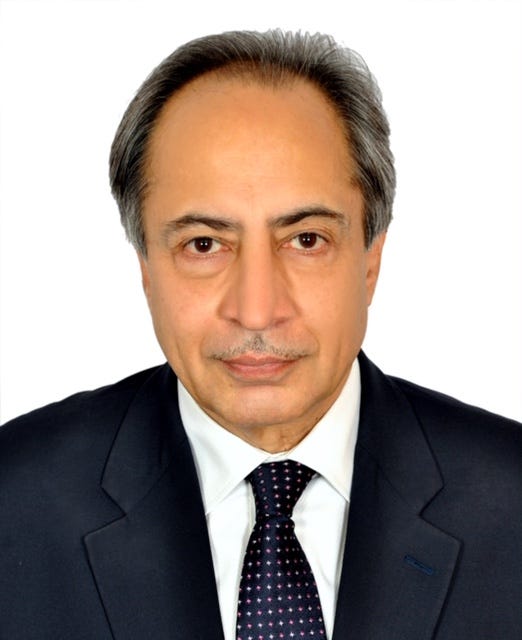Dear Friends,
Thank you for all your kind comments and suggestions. Please keep them coming, I love to read them.
In this edition, among other things, I would like to give you a quick insight into the role of Independent Directors. Please bear with me if you find the topic a bit dry. I will try to keep it simple.
💼 Independent Directors
If you invest in shares of a company, you ought to be concerned as to how that company is performing. The retail investor typically looks at short term gains. They will buy and sell and make a small profit or will stay invested but look for dividends, bonus shares, etc. Many of them do not realise that the interest of the minority shareholders ranks first on the list of dos & don'ts of an Independent Director (ID).
An ID is integral to corporate governance, which essentially implies that she should ensure that the company is run efficiently and transparently — in compliance with all the regulations — and creates value for the shareholders at large, who are not represented on the board of that company. This underscores the point that an ID is not as concerned for the welfare or interests of the promoter as much as she is for the minority shareholders.
I have been an ID myself for a number of years, and I do believe that independence is a state of mind and to be objective and constructive during boardroom deliberations requires a conscientious approach to decision making. As Steve Jobs said,
“Don’t let the noise of others’ opinions drown out your own inner voice”
I interviewed Sanjeev Aga, a friend, ex-colleague and now an accomplished Independent Director and asked him a few questions. Few, only because of time and space limitations.
Mr. Sanjeev Aga has been in the business sector since 1973 and has held senior positions in Asian Paints, Chellarams (Nigeria), and Jenson & Nicholson. He headed the Furniture and Leo-Mattel Toys businesses of VIP Industries before rising to be MD.
He has also been Managing Director of Aditya Birla Nuvo, and of Idea Cellular before stepping down in 2011. Mr. Aga now engages in advisory and board roles for corporates and not-for-profit companies.
I interviewed Sanjeev on a few select matters and his vast experience and practical insights shone through in his answers. Please read on:
Pras: Sanjeev, you have been on the management side of things for a large part of your life. What were your impressions, then, of the role of Independent Directors? How were your interactions with them?
Sanjeev: Having spent many happy years as a senior manager, I feel great to stay involved with other businesses and organisations. Almost like a fish in water. Of course, there is a huge difference between being in the hot seat and being in a non-executive role representing the wider stakeholder interest. I am always aware of the difference, and I do not blur the line when I am discharging my duties as an ID.
Pras: Life has come a full circle for you and you are now an Independent Director. Do you think your years of management experience makes you a better Independent Director? And why?
Sanjeev: Indeed so. The obvious advantage is that having headed diverse businesses, there is experience and perspective to draw upon. The less obvious advantage is that I remember my time as an executive board member, and can distinguish what contributions of Independent Directors were value-adding and which were less so.
Pras: Though the law mandates a seat for women on boards it could have gone a step forward and mandated that if a company is required to have IDs, at least one of them should be a woman. Do you agree and don't you think that would have accomplished true diversity & inclusiveness in independent thinking & decision making?
Sanjeev: Yes. I think so. An affirmative nudge helps in catalysing change. Incidentally, all my boards do have a lady ID, even if not mandated.
Pras: In your time you have done several M&A transactions big and small. As an ID what is the role you see for yourself when a deal is placed before the board for approval?
Sanjeev: Well, there are boards where the management capabilities with M&A are immense. The role there has to be less prescriptive and more supportive and risk evaluative. Then there are managements which may not be equally equipped. There, even playing the role of a pre-deal sounding board is important. An ID should not play from a set template.
Pras: Are Board evaluation by IDs a mere formality or in your experience they have been very useful in course correction and improvement of board processes? Can you share an example to underscore the utility of such appraisal?
Sanjeev: Among the better boards, board evaluation has progressed beyond tick-boxing and has yielded improvements that may not otherwise have happened. But this has required conducting the exercise with sensitivity and not with a sledgehammer. Illustratively, the ratings are often upon a common set of questions, whereas IDs bring, and should bring diverse skill sets. So ratings should reflect the board requirement and not a junior school test.
Pras: Lastly, despite so much stress on internal controls some companies have unchecked porosity in the system, and they are either on the verge of bankruptcy or under investigation. What can IDs, particularly those on Audit Committees, do to ensure that controls are robust and financial statements reflect the true state of affairs?
Sanjeev: Several Indian corporates are ‘known’ to be wayward in governance standards. But what comes to the Audit Committees is “rinsed” data. The Audit Committee should in such cases probe deeper. But that rarely happens. This subject gets to the heart of appointment of IDs. No realistic remedy has yet been thrown up, but I guess something will emerge before long. That said, there are many corporates that are squeaky clean and where the management welcomes the scrutiny of a fresh pair of eyes.
Thank you, Sanjeev, for your valuable insights on this topic!
Sanjeev’s answer reminded me of something Warren Buffet said about Audit Committees:
“Audit committees can’t audit. Frequently, auditors know about deceptions. Too often, however, they remain silent. The key job of the audit committee is simply to get the auditors to divulge what they know. Auditors should worry more about misleading Audit Committee members than about offending management. In recent years, auditors have generally viewed the CEO, rather than the shareholders or directors, as their client.”
I hope you liked the insights that Sanjeev provided. Please post your questions or comments here.
🤔 Anything Special About Nov. 22nd?
I was searching to see if there was anything special that I can write about today’s date. As it turns out, there were many. On 22nd Nov 1963, Kennedy’s assassination occurred and Lyndon B. Johnson became the president. On 22nd Nov, Angela Markel became the first woman chancellor. There's also an unofficial fun day on November 22nd which is called “Go For A Ride Day”. It encourages people to go for a ride on whichever vehicle they choose and have a picnic and really have fun. We may have to be a little more restrained in our celebrations this year, of course!
And just yesterday, November 21st, was “World Hello Day” when you are expected to go out and greet people — even rank strangers! Oh, my, where do these ‘days’ come from? Anyway, they add to the ever-growing volume of fun facts.
But on a more somber note, this year on 22nd November, Germany observes Stiller Tag or ‘Silent Day’. It is also known as ‘Sunday Of The Dead’ or TotensonnTag. In keeping with the solemnity of the occasion, music and other performances are avoided. Germans visit the grave of the departed parents, relatives or ancestors. The Sunday of the Dead was first declared as such officially by Frederick William the III of Prussia way back in 1816.
🧠 Common Sense
An Obituary printed in the London Times “Common Sense is Dead”
(Please don’t read too seriously into this humorous piece!)
Today we mourn the passing of a beloved old friend, Common Sense, who has been with us for many years. No one knows for sure how old he was since his birth records were long ago lost in bureaucratic red tape. He will be remembered as having cultivated such valuable lessons as:
Knowing when to come in out of the rain
Why the early bird gets the worm
Life isn't always fair
And maybe it was my fault.
Common Sense lived by simple, sound financial policies (don't spend more than you can earn) and reliable strategies (adults, not children, are in charge).
His health began to deteriorate rapidly when well-intentioned but overbearing regulations were set in place. Reports of a 6-year-old boy charged with sexual harassment for kissing a classmate; teens suspended from school for using mouthwash after lunch; and a teacher fired for reprimanding an unruly student, only worsened his condition.
Common Sense lost ground when parents attacked teachers for doing the job that they themselves had failed to do in disciplining their unruly children.
It declined even further when schools were required to get parental consent to administer sun lotion or an aspirin to a student, but could not inform parents when a student became pregnant and wanted to have an abortion.
Common Sense lost the will to live as the churches became businesses, and criminals received better treatment than their victims.
Common Sense took a beating when you couldn't defend yourself from a burglar in your own home and the burglar could sue you for assault.
Common Sense finally gave up the will to live, after a woman failed to realize that a steaming cup of coffee was hot. She spilled a little in her lap and was promptly awarded a huge settlement.
Common Sense was preceded in death
by his parents, Truth and Trust
by his wife, Discretion
by his daughter, Responsibility
and by his son, Reason.
He is survived by his 5 stepchildren
I Know My Rights
I Want It Now
Someone Else Is To Blame
I'm A Victim
Pay me for Doing Nothing
Not many attended his funeral because so few realized he was gone. If you still remember him, pass this on. If not, join the majority and do nothing.
Thank you Readers for your continued support of Filter Coffee. I sincerely hope everyone in the country will have the common sense to wear a Mask and Sanitize as needed! See you next week!






Very interesting piece on the role of Independent Directors. Brings up a dilemma faced by IDs in companies where unethical doings start emerging - should the ID mark his/her protest by stepping down or should they continue in order to try fixing the problems (and risk getting embroiled in the scandal which invariably follows)?
I liked the simplicity with which Mr. Aga directly admits that no realistic remedy has been thrown up yet, on the issue of wayward governance standards. We read so much on prescriptive governance solutions but the reality is what Mr. Aga has said so clearly. ....